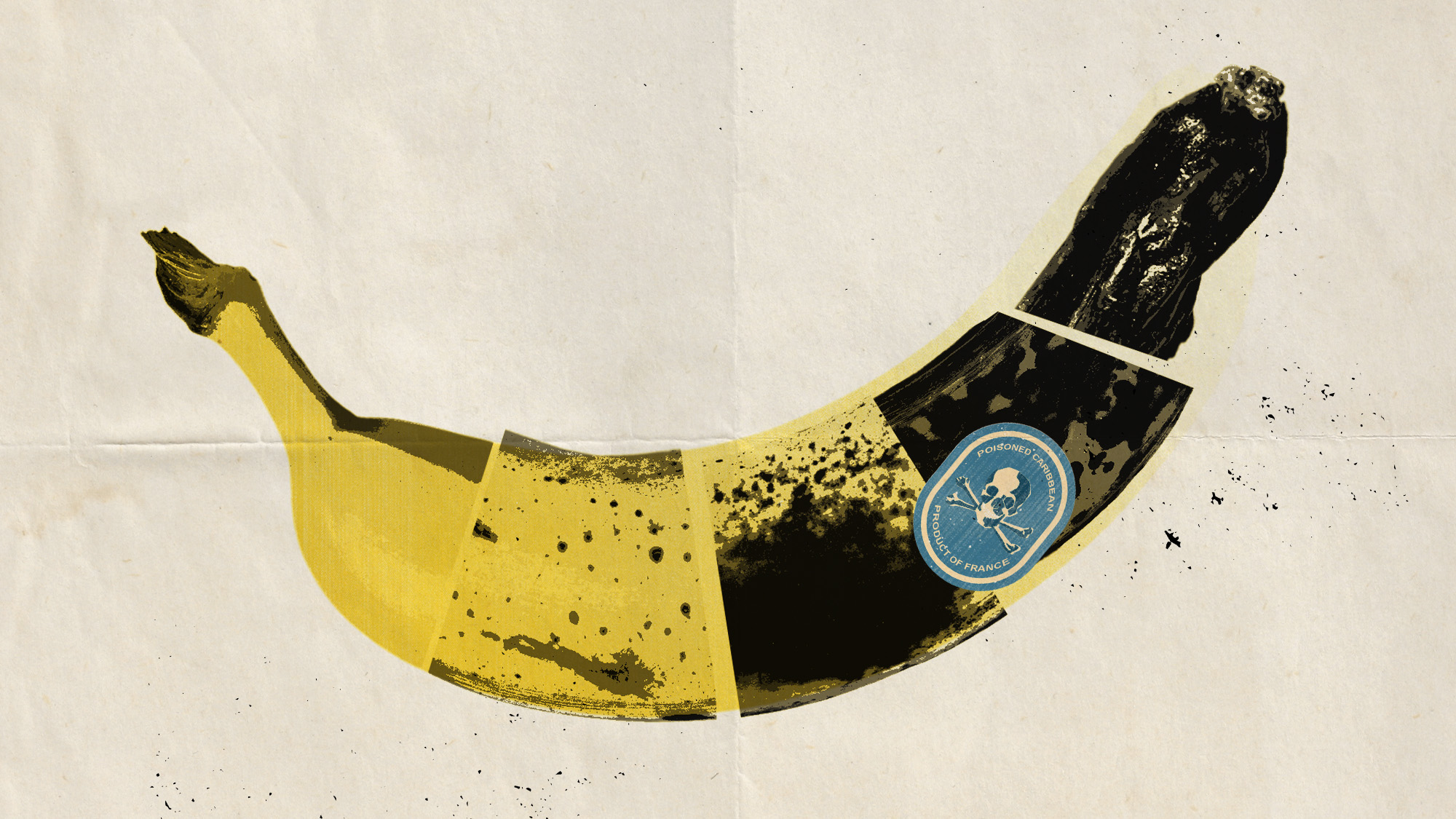The banned pesticide poisoning Caribbean paradise
Martinique and Guadeloupe have been rocked by soaring cancer rates amid other diagnoses

A free daily email with the biggest news stories of the day – and the best features from TheWeek.com
You are now subscribed
Your newsletter sign-up was successful
The Caribbean islands of Martinique and Guadeloupe conjure images of sun, sea and sand. But for several decades they have been far from a tropical paradise for many local workers.
From the early 1970s until 1993, chlordecone, an "extremely toxic and persistent" pesticide, was used in banana plantations to tackle the banana weevil, a "pest that ravaged crops", said The Guardian.
Years later, residents of the two French territories continue to suffer. The islands have some of the highest rates of prostate cancer in the world, and chlordecone is "one of the culprits".
The Week
Escape your echo chamber. Get the facts behind the news, plus analysis from multiple perspectives.

Sign up for The Week's Free Newsletters
From our morning news briefing to a weekly Good News Newsletter, get the best of The Week delivered directly to your inbox.
From our morning news briefing to a weekly Good News Newsletter, get the best of The Week delivered directly to your inbox.
'Staggering' consequences
Chlordecone was first produced in 1952 and patented in the United States for use on a variety of crops. But it was banned in the 1970s after factory workers in Virginia producing the molecule exhibited "alarming neurological damage", said Atmos.
Other countries outlawed the pesticide, but France acquired its patent for use in its former colonies, "despite warnings" of its side effects. By the time France finally banned it in 1993, around one-sixth of the world's chlordecone had been used in the Caribbean islands. "Adding insult to injury", landowners across the islands successfully petitioned France to extend the use of chlordecone after it had been banned, although there were "effective alternatives", said Equal Times.
The consequences have been "staggering". It was estimated by local authorities in 2014 that 90% of the islanders have "traces of the pesticide in their blood". It will also take "around seven centuries" for it to be totally eliminated from the soil. Many Martiniquais and Guadeloupeans were exposed to the chemical through "food consumption" from contaminated land, said The Guardian. Former plantation workers exhibit a host of illnesses, from cancer to "hormonal and heart issues".
'Long fight for justice'
In March this year, a landmark ruling found France guilty of "wrongful negligence" for the widespread use of chlordecone in the Caribbean, said The Associated Press. The French government must now offer "financial reparation" for the anxiety suffered by those "durably exposed to the pollution", if they can prove damage. While the decision is a "small step in a long fight for justice", the "vast majority" of plaintiffs in the case will receive nothing, said The Guardian.
A free daily email with the biggest news stories of the day – and the best features from TheWeek.com
For those who have been able to claim compensation, through the recent ruling or via previously established aid schemes for workers, the lengthy application process is seen as a "slap in the face" for the sick, many of whom "may not survive".
Rebekah Evans joined The Week as newsletter editor in 2023 and has written on subjects ranging from Ukraine and Afghanistan to fast fashion and "brotox". She started her career at Reach plc, where she cut her teeth on news, before pivoting into personal finance at the height of the pandemic and cost-of-living crisis. Social affairs is another of her passions, and she has interviewed people from across the world and from all walks of life. Rebekah completed an NCTJ with the Press Association and has written for publications including The Guardian, The Week magazine, the Press Association and local newspapers.